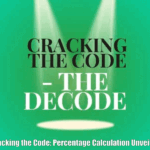Mastering Vietnamese tones is key because they’re vitally important for speaking clearly and ensuring you understand what you’re trying to say. If you become proficient at those tones, it helps you talk easily and truly understand the culture. If you want to speak Vietnamese well and improve your conversations, remain because I’ve got some spectacular tips you need to know that might help boost your language approach.
Importance of Accurate Pronunciation
Getting pronunciation right is vital if you’re learning Vietnamese because saying words correctly is key to speaking so people can know what you’re telling them. When you pronounce everything correctly, it shows you respect the Vietnamese language and culture and means native speakers can better understand you.
By paying close attention to how words are said, students become better at speaking and understanding Vietnamese people; there is a profound and deep-seated certainty that hearing how real speakers use the language makes understanding its true sounds easier. Getting down the way to say Trau Buoc and Trau An right is key to truly knowing Vietnamese and exploring what makes the language special.
Understanding Vietnamese Tones
Vietnamese has six unique tones – ngang, sắc, huyền, hỏi, ngã, nặng, which are very important in making sure you are saying what you mean to say. If you want to become first-rate at pronouncing items in Vietnamese, especially tricky things such as tau bloc and tau an, you must perfect these tones. It is noticeably focused on hitting the right tone because a tiny shift can turn your words into something different.
It might sound wild–but if you want to become better at speaking and make sure people understand what you’re trying to say, it helps to listen to how people who grew up speaking the language do it. When we listen to how native speakers use tone, we learn how to say things. This boosts how we sound and makes our speaking smoother.
Tips for Practicing Pronunciation
One clearly can envision needing to practice pronouncing words in Vietnamese, especially after you becomes familiar with the tones. If you wish to improve at saying phrases such as tau bloc get tau an, you should break them into smaller parts to focus on them more closely. Watching your mouth in a mirror and recording your sound might help you see where to improve.
Utilizing Resources for Improvement
We can take as a definite certainty that getting better at pronouncing words is doable. You have an array of learning options, depending on what you’re into; there are YouTube videos and flashcards if you prefer to see visually and practice material. If reading’s more your thing, there are plenty of books; if you’re primarily focused on doing things on your phone, language apps allow you to hear how native speakers say things and let you use them, too.
Check out other Articles.
Cultural Significance and Incorporation
Mastering Vietnamese tones in phrases, such as Trau Buoc around the Trau An, is more than just about mastering language skills. When you say the words correctly, it’s not just great – it shows you respect the Vietnamese culture and language. This action speaks volumes regarding valuing resilience and determination.
When you write the phrase down where you can see it daily, you’ll remember it better and slowly improve. The reader is destined to learn that using the phrase a lot is wonderful because it marks how much you are improving and lets you discuss learning material with buddies, helping you know and like the Vietnamese language and its amazing culture more.
Frequently Asked Questions
Are There Any Common Mistakes to Avoid When Practicing Vietnamese Tones?
When working on Vietnamese tones, using tone marks incorrectly, mixing up tones that sound nearly alike, not paying enough attention to how tones change when words are put together, and not practising regularly are big mistakes. It is apparent to you and me that being aware, seriously practising, and getting feedback matter if you want to become proficient at tones.
Can Listening to Vietnamese Music Help With Tone Recognition?
By tuning into Vietnamese tunes, people can become better at noticing different pitches since it places them into real speech patterns and beats; this helps with speaking clearer and being better at catching what’s being said; there can be gratification in listening to this type of music because it boosts how well someone can hear the rise and fall in voices.
What Role Does Intonation Play in Vietnamese Pronunciation?
For anyone trying to master Vietnamese pronunciation, getting the tune (intonation) right is vitally important because it’s what makes the words mean different things; to understand better and make sure you can converse clearly, you must become familiar with the six tones, and speak a lot with people who’ve been speaking Vietnamese their whole lives.
Are There Specific Tongue or Lip Exercises to Improve Tone Accuracy?
If you want your Vietnamese pronunciation to improve, practice saying those tricky sentences, copy how the native speakers speak, and work on hitting each tone correctly. These specific exercises for your tongue and mouth can make them more precise in getting the tones right. If you keep at it and listen to how you are progressing, with help from others, you will see good results.
Conclusion
Getting the tones right is vital to proficiently speaking and understanding Vietnamese. Getting these tones down means you’re taking a step toward discovery and discernment because your pronunciation improves, and your words come across right.






